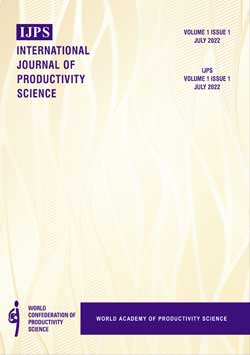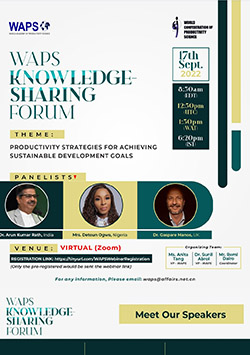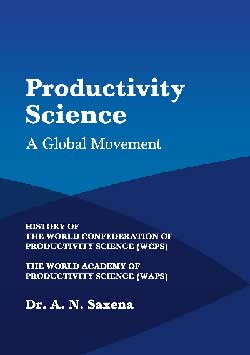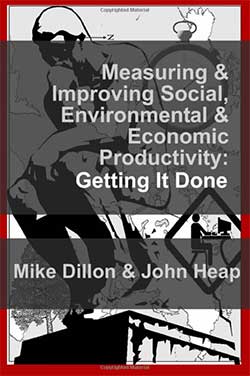WAPS Resource Bank on Productivity
WAPS offers its members a multi-discipline resource bank on productivity. It conducts a variety of activities through different avenues:
- Education: seminars, workshops, roundtable discussions, e-learning courses
- Capacity building: standardized training modules and materials
- Productivity tools and instruments
- Certification and accreditation of productivity professionals and institutions
- Knowledge management portal
- Publications and journals: books, monographs, e-Journal
- Exchange visits for knowledge transfer
- Collaboration with academic and research institutes

International Journal of Productivity Science (IJPS)
IJPS is a WAPS annual digital publication aiming to disseminate the views and knowledge of experts across disciplines, sectors, geographies, and professions with respect to Social, Environmental, and Economic Productivity issues. IJPS is our first step to reacquainting with our Fellows and reaching out to other productivity professionals around the world.

Knowledge-Sharing Forum
The Knowledge-Sharing Forum (KSF) is an online-learning program delivered by the World Academy of Productivity Science. KSF provides a forum for sharing knowledge and experiences, best practices, and future trends by academicians, thought leaders, subject-matter experts, industry leaders, government officials, and Fellows of WAPS around the world on productivity-related topics, challenges, and issues. KSF is a great source of learning, knowledge sharing, networking, and making a difference through your professional expertise.

Productivity Science. A Global Movement.
Dr. A. N. Saxena
History of the World Confederation of Productivity Science (WCPS) The World Academy of Productivity Science (WAPS)
Thinking aloud, I recalled Benjamin Franklin who once said: “If you would not be forgotten as soon as you are dead, either do something worth writing or write something worth reading.”
I realized the same in my life. I do not claim to have done much worthy writing and therefore, let me console myself by documenting the history of WCPS which could provide useful information, could equally serve as a guide to the present generation of productivity practitioners, and be of some benefit to those who will spearhead the global productivity drive in the years to come.

Measuring and Improving Social, Environmental & Economic Productivity: Getting It Done (Volume 1)
Mike Dillon, John P Heap
This is the first in a series of books from the Institute of Productivity aimed at providing a comprehensive, practical approach to the measurement and improvement of performance and productivity, at organisational and at national level. These books are aimed at a range of audiences – from policy-makers and strategists, through project officers and facilitators to (especially) the practitioners – those responsible for ‘Getting It Done’. The books introduce and explain relevant concepts and theory but they always take the reader through specific approaches, techniques and examples that act as a template for practical implementation. The books are designed to be pragmatic … to give real world approaches and solutions. They are designed to be brief … and to be complementary. Though each book stands alone, maximum benefit comes from applying the concepts across the series of books – Getting It (All) Done.

Improving National Productivity – A Guide to Concentrating Issues and Initiatives within a National Productivity Organisation
John P Heap
This guide explores issues surrounding the establishment of an organisation to act as a catalyst or facilitator to improve national productivity. Such initiatives usually arise from a government recognising that building and enhancing productive capacity is the only long-term means of improving and sustaining national wealth.
This guide addresses the role of a national productivity organisation (in terms of what it might set out to do, and how it might achieve it) and discusses its structure, governance and funding.
